This year marks the fiftieth anniversary of the Lausanne Movement. Evangelicals throughout the world are planning to gather for the fourth congress in Seoul.
Earlier today I participated in the movement’s release of the “State of the Great Commission Report.” This precursor to September’s gathering is to provide an account of global Kingdom labors and attempt to make projections to mid-century. The report addresses 10 questions with 40 topics. The work was comprised by 150 global authors and is over 500 pages in length.
As with Lausanne III, Lausanne IV will not have little for discussion: world demography, migration, urbanization, persecution, poverty, creation care, evangelism, church planting, discipleship, health care, A. I., bio-technology, LGBTQ+ issues, polycentric Christianity, money, resource use and mobilization, theological education, Bible translation, use of technology, religions, secularism, values, and trust are included.
Lausanne was founded on a vision for world evangelization in 1974. Therefore, in the spirit of 74, I writing this extended post summarizing possibly the most important part of the report which addresses unreached peoples and evangelization. This section of the report contains both encouraging and concerning matters.
The estimated global missionary count is 450,000. The distribution of those individuals between reached and unreached people groups is shocking. Those in the missions community have known about this information for years and have attempted to raise awareness. However, I am pleased to see Lausanne is working hard to draw attention to the present reality: 435,000 missionaries are serving among reached peoples (4.6 billion); and 15,000 missionaries are serving among unreached peoples (3.3 billion).
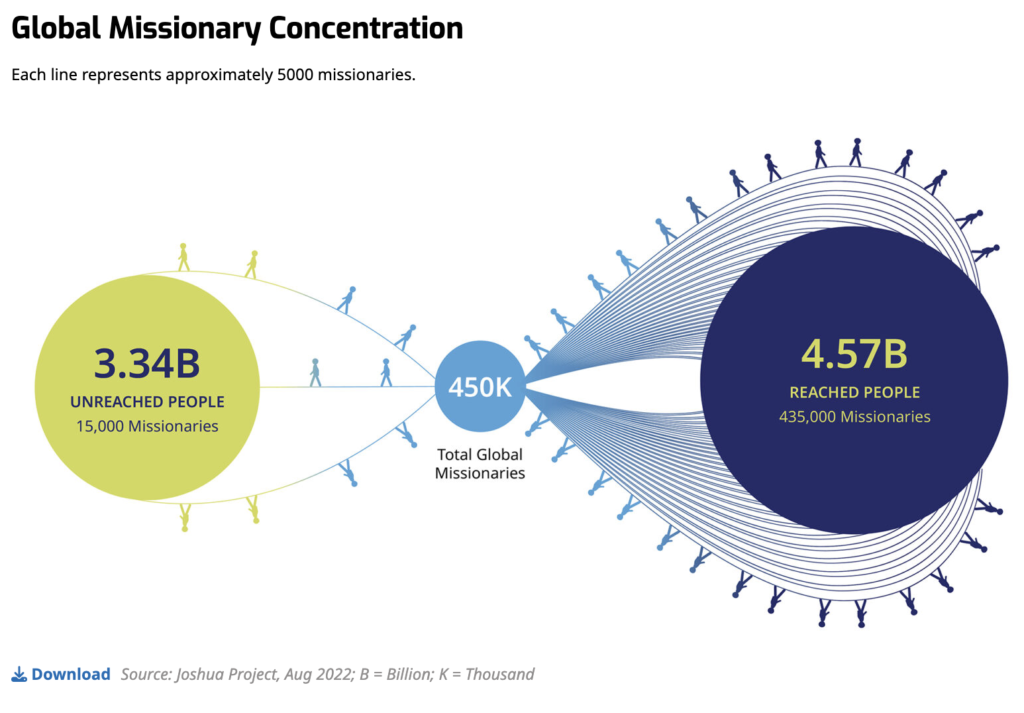
Lausanne I raised awareness for lostness, people group identification, and the development of strategies for reaching the unevangelized. However, I wonder what the founders of the movement would say after reading Lausanne IV’s report that revealed 97% of the global missionaries are serving reached areas of the world.
After a century of increasing gospel access, decline is expected. All regions of the world will experience an increase in the proportion of the population that is unevangelized. South Asia (i.e., India, Pakistan, and Bangladesh) is expected to remain the least evangelized region for decades into the future.
According to 1500 global Christian leaders, those in Africa, Asia, and Latin America assumed 30-40% of Christians viewed the Great Commission as optional. The perceived percentage increased to 50% among leaders in North America, Europe, an Australia. Leaders throughout the world, estimated only half of the churches in their regions were united by a Great Commission vision.
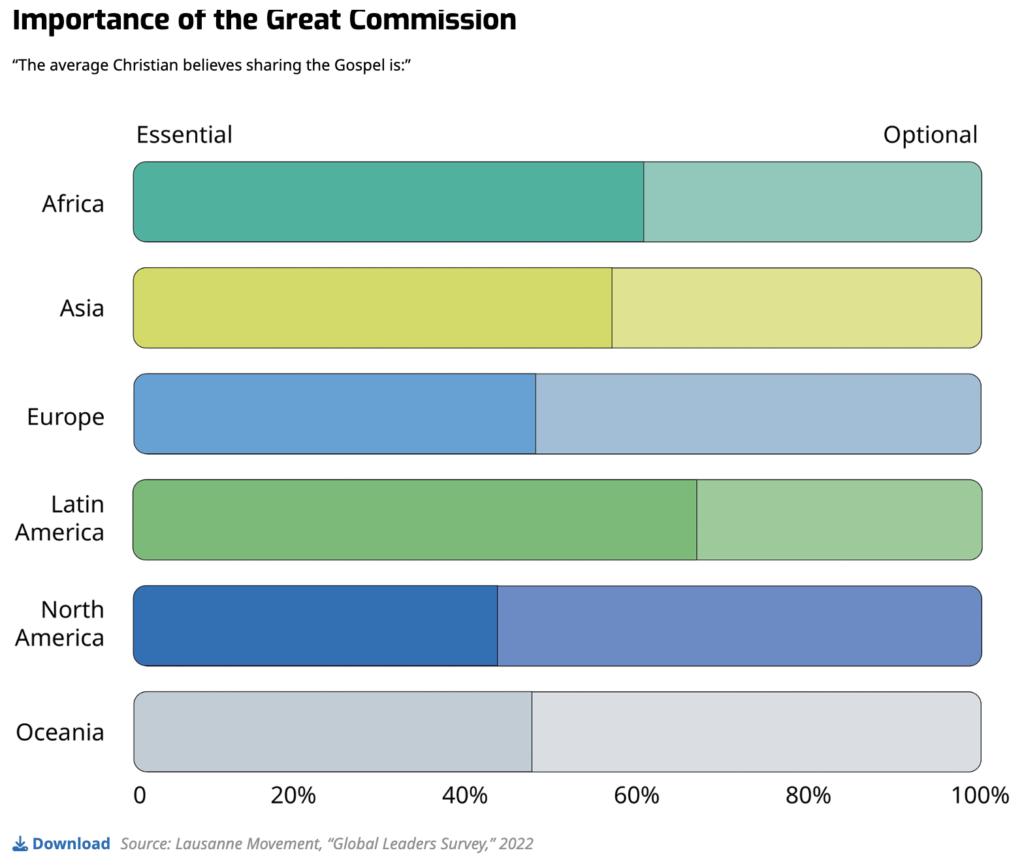
Global leaders also believe less than half of Christians in their regions know what is the Great Commission. When asked “What percentage of members in your local church would say they feel prepared to share the Gospel with others,” all regions ranged from 36-47%.
The report raises a good question about current approaches to discipleship. When global leaders were asked about the regularity of churches teaching about the Great Commission, 65-80% perceived such happened often or on a semi-regular basis. However, such respondents added less than 15-20% of Christians are very active in sharing the gospel and 35-40% of Christians never or rarely evangelize.
Countries that have been recipients of large amounts of western missionary resources over the past two hundred years, remain home to the largest number of unreached people groups. According to the numbers (source: Joshua Project), India, Pakistan, China, Bangladesh, and Nepal are the countries with the largest number of unreached people groups. And finally, here is a list, released to the world, noting the United States is in ninth place with the most unreached people groups. As I have reported since 2012 in my book Strangers Next Door, the evidence (from Global Research Department) notes the United States is actually in third place for the most number of unreached people groups. But many people want to ignore this reality. Regardless, I am thankful Lausanne has recognized the United States’ position—even if it took twelve years!
The number of people subscribing to indigenous (ethnic) religions has declined rapidly over the past fifty years. However, Muslims and Hindus have increased. Various types of religious growth throughout China is causing a decline among the agnostic population. While the number of unreached people groups declines, the population of unreached peoples continues to increase.
It is also encouraging to see disciple making movements and church planting movements receiving attention. Church planting movement (CPM) literature is over twenty years old, but I do not recall Lausanne addressing CPMs at Cape Town 2010. If such is the case, here is another example of taking too long to engage in a significant matter.
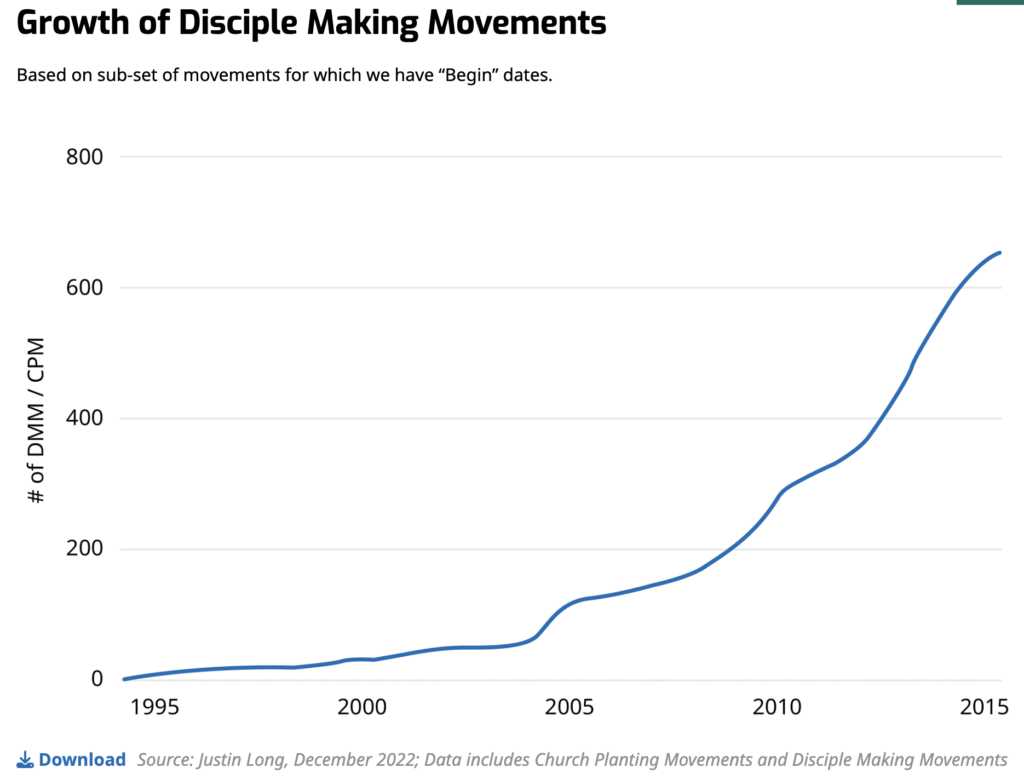
Very encouraging matters are taking place regarding such movements. Justin Long estimates several thousand are occurring at various stages throughout the world.
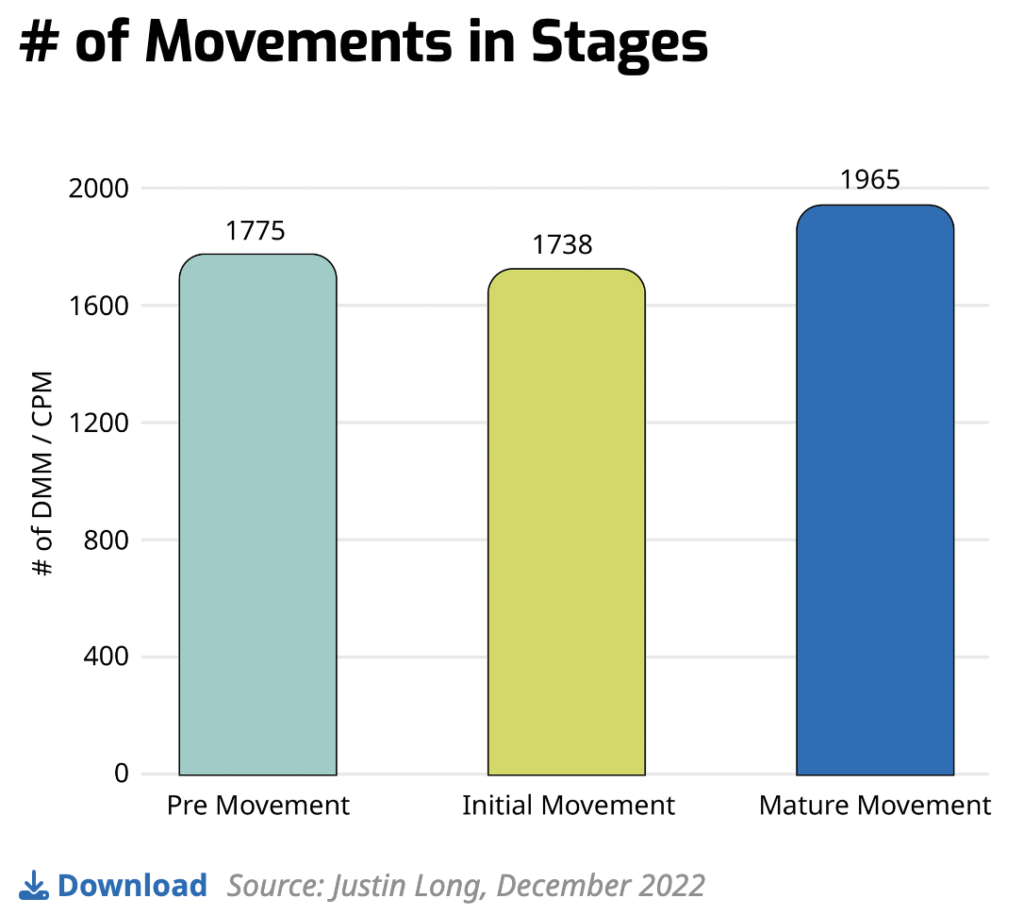
At least 9 million churches have resulted from CPMs, with most of these churches comprised of an average 14 disciples.
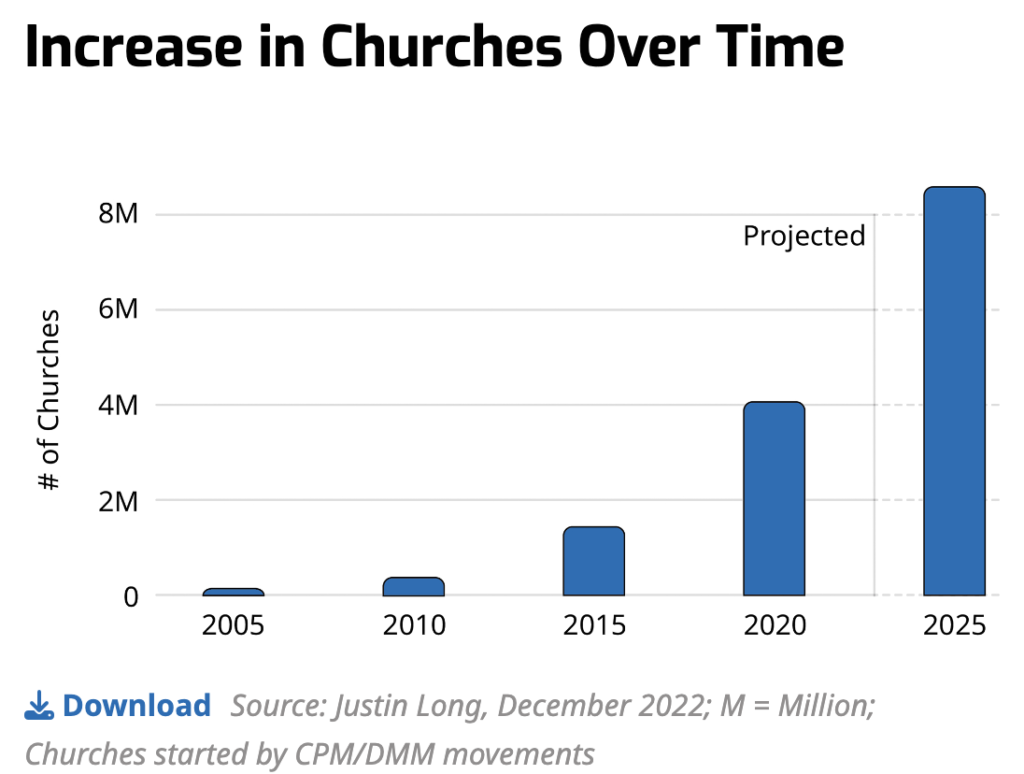
Our sisters and brothers have worked very hard to put together the “State of the Great Commission Report.” We should be thankful for this material. It will be helpful for years to follow. Be sure to check it out. There is a wealth of information here.
On a related note: Some of you have asked if I think Lausanne has shifted from the spirit of 74 by moving away from a prioritization on evangelism. Stories are in print of heated debate and conflict that occurred in the hallways and after hours during Lausanne I. Some of these matters were reflected in the documentation of Lausanne II (Manila) in 1989. Based on what I experienced at Lausanne-sponsored gatherings in 2010 (and read), I wondered (during that time) if Lausanne III would reveal a loss of original focus. On October 13, 2010, I wrote the blog post read around the world. Though I was not expecting much to come of it, I received swift feedback from Lausanne leadership that the movement had not moved from the spirit of 74. I was more encouraged after Cape Town than before the gathering.
Do I think the original focus has been lost? Overall, yes. While I am a supporter of the movement, I do believe “global evangelization” has shifted to “global mission,” which has become (and is becoming) everything. The website’s tagline is “Accelerating Global Mission together.”
However, global evangelicals are a diverse people. Speak to some related to the movement and you will hear a priority on evangelism that results in disciple making. Speak with others within the movement and you will find a relegation of evangelism behind a variety of extremely important matters. And these are important matters which should be a concern for the Church. . . but not for a movement originally founded upon a narrow issue: global evangelism.
Broad is the way of mission. Narrow is the way of evangelism and disciple making. Local churches are to be engaged in a wide array of Kingdom activities. Lausanne no longer has the original laser focus. After fifty years, the movement has diversified.
But diversification is not a wise move given the global state noted in the report. If ever there was a time for a laser focus on evangelism and disciple making, now is that time. What will Lausanne do with her findings?
Am I excited for this year’s gathering? Yes! Will I be attending the gathering in Seoul? No. I was invited, but do not plan to be there. I have been somewhat engaged through the online audience. Do I think the movement is doing great work? Absolutely! Will I be praying for the event? Certainly! I have been and will continue to do so. Have I given up on the movement? No way! Concerned? Yes.
What will Seoul 2024 be known for? I don’t know. Ask me after the concluding events on September 28, 2024.

Lausanne’s discussion in Cap Town did not mentioned about CPM. For the upcoming gathering in September, Much should be lifted about CPM and Child evangelism, As a Child worker and developer, as early childhood education is import, equally so, early childhood evangelism should be. I wish to attend attend the fouth congress of Lausanne in seoul .
Thank you for sharing, Sam. Yes, these are important topics.